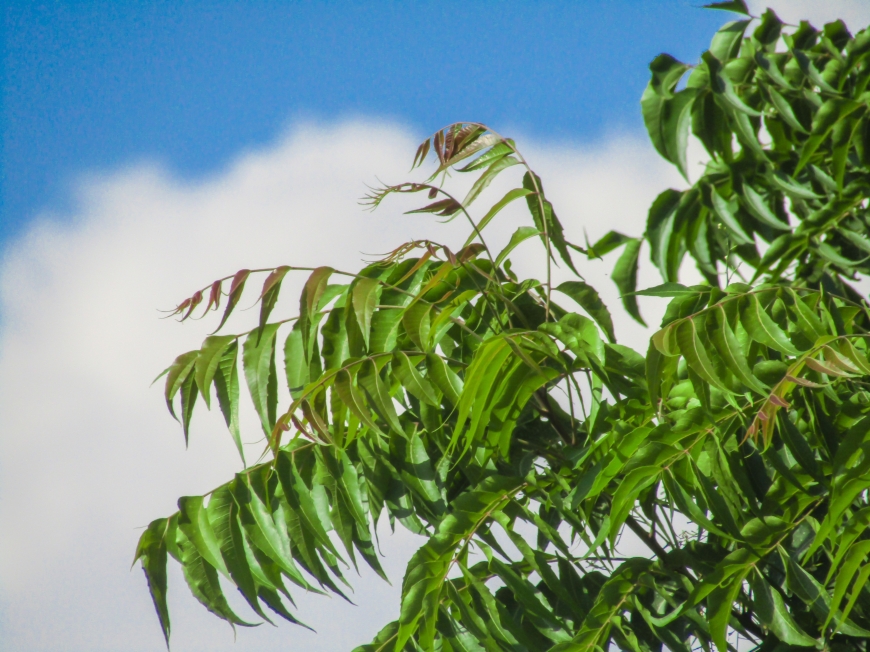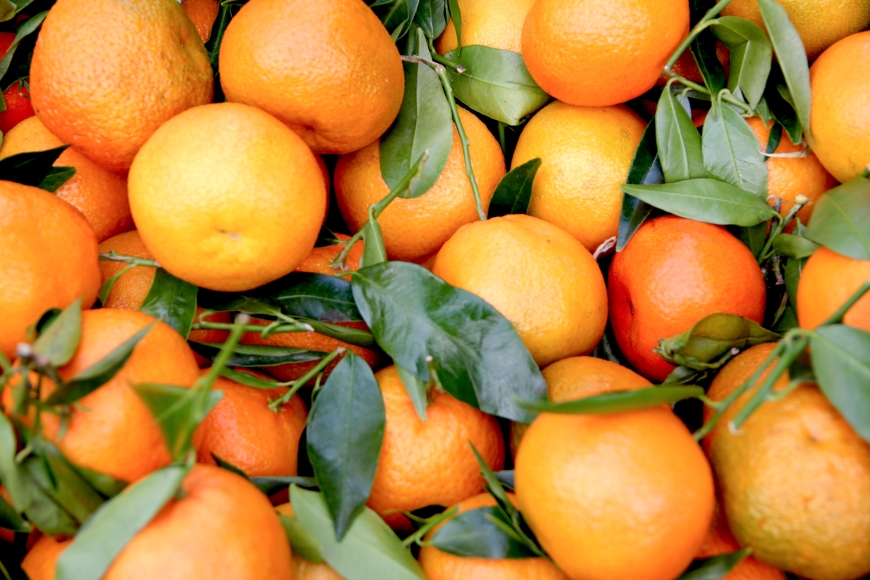An Introduction to Neem

Neem is one of the most popular healing herbs in Ayurveda. Most importantly, it has incredible cosmetic and healing effects. This is because it contains cell reinforcement traits which fight maturation. It namely secures your skin from harmful UV rays, dust, and grime. Further, it contains nutrients and greasy acids which retains skin flexibility and diminishes wrinkles. In this manner, it keeps your skin glowing and youthful.
The benefits don’t stop there. This is because such leaves contain protein (7.1%) and carbohydrates (22.9%), among dominant food groups. Further, it contains minerals, calcium, phosphorus, and carotene, among other minerals. In addition, it contains glutamine, glutamic acid, and cystine, such as amino acids and fatty acids. Thus, it can traditionally treat various illnesses such as leprosy, eye disorders, appetite loss, fever, and diabetes. So it isn’t just Ayurveda which stresses the importance of neem leaves. You can find that medical experts propagates this as well.
Overview
The Neem tree grows in tropical areas such as India and Myanmar. Its medicinal benefits are mostly present in its bark, leaves, and seeds. Further, the root, flower, and fruit are also sometimes in use. Best of all, you don’t need to stove this away until illnesses strike. For instance, many traditionally use Neem leaves for tooth, gum, and hair health. Further, some use this as an all-natural and refreshing insect repellant.
This tree is indeed a gift, for each part has its own benefits. These include the leaves, roots, stem, flowers, barks, or fruit – each of these are valuable. Thus, it is no surprise that this plant houses multiple names. For instance, many call it the ‘holy’, ‘divine’, or ‘life giving’ tree, or even ‘nature’s pharmacy’. Most importantly, the scientific name contains the word ‘Azad’ meaning freedom. This symbolises its status as a free tree which is native to India.
Benefits
First, neem leaves can cure tooth plaque. You can simply apply a neem extract gel to the teeth, or alternatively, use a neem mouthwash. This provides a cooling and fresh effect to the mouth and gets rid of impurities. Along similar lines, this practice can also cure gingivitis, which is a mild form of gum disease. However you may want to opt for a more robust medicines in the case of long-term dental problems.
Secondly, it helps to cure dandruff and head lice. Dandruff is typically a result of skin dryness, fungal infections, or such skin conditions. In response, Neem oil can tackles the root causes of a flaking skin and dryness. This, in turn, prevents dryness and retains hair health. It particularly contains a substance called nimbidin which alleviates inflammatory response.
Third, it can get rid of acne and similar skin conditions. This is because it fights off inflammation and microbial activity. Don’t just take this from us – many lab experiments also prove this. For instance, one study finds that neem oil preparation using solid lipid nanoparticle technology can clear harmful microbial matter. For these reasons, many suggest using oil successfully as a long-term treatment measure.
Fourth, it contains valuable digestive properties. For instance, Neem oil and powdered forms can prevent or reduce gas formation in your food canal. Thus, it can ward away bloating, gas, or abdominal distention. Further, the fibre presence in Neem powder can prevent constipation and keep you fuller for longer. Finally, this herb treats indigestion, ulcers, and heartburn due to its antacid properties.
Fifth, this herb acts as a natural immunity booster. It contains antioxidant and bioactive compounds which keep infections at bay. Thus, it gets rid of fevers, sore throats, and such respiratory illnesses. This keeps you active and alert as well.
Neem and Ayurveda
The neem plant is present in multiple Ayurvedic texts, ranging from the Atharva vedas, Upanishads, and Amarkosha scriptures. Each of these recognise this herb as a mainly ‘rejuvenative’ one. First, concerning digestive relief, this herb can increase stomach fire, raises appetite, and treats piles, indigestion, diarrhoea, and intestinal worms. Secondly, it aids your respiratory system by improving breathing, and can relieve hiccups, sore throat, hiccups, and voice clarity. Thirdly, it amends the excretory system by treating painful micturition, burning sensations, and emesis.
This plant contains bitter and astringent tastes. Further, it possesses a light, dry, and cooling potency. As a result, it pacifies your pitta (fire and air) and kapha (air and water) doshas. However, excessive amounts of this herb can aggravate your vata (air) dosha. Overall, it provides inherently positive effects on your body tissues and fluids.
Neem Oil Preparation
Neem oil contains extensive moisturising and nourishing properties. This is because it is rich in vitamin E and fatty acid content. Both of these boost skin and hair health. Fortunately, you can prepare this oil at home through the heat infusion method. It is a simple and foolproof method that nearly anyone can do.
You will require two cups of Neem leaves and one cup of coconut oil. First, wash the leaves in running water to get rid of impurities. Next, blend them in a grinder to make a thick paste. Now keep this aside, and boil coconut oil in a thick-bottomed container until it becomes transparent. Add in the Neem paste and stir the mixture gently. Finally, switch off the flame and allow the mixture to cool down.
Make sure to strain out the oil to remove unblended neem leaves. Once the mixture is cool, you can store it in an airtight container.
Takeaways
The neem plant is an incredible Ayurvedic herb. It is refreshing, versatile, and nutrient-rich, which has been in use for centuries. For these reasons, Ayurveda prizes this herb as an all-natural medicine which carries little to no side effects. However, it isn’t just ancient texts that boast of these benefits. Modern science uses this herb in various pills and remedies as well. Overall, make sure to employ this herb in various forms to reap its benefits.








